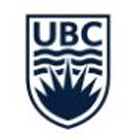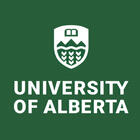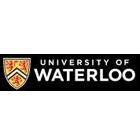- News and articles
- Events
- Find usIDP AustraliaIDP BahrainIDP BangladeshIDP CambodiaIDP CanadaIDP ChinaIDP EgyptIDP GhanaIDP Hong KongIDP IndiaIDP IndonesiaIDP IranIDP JordanIDP KenyaIDP KoreaIDP KuwaitIDP LebanonIDP MalaysiaIDP MauritiusIDP Middle EastIDP NepalIDP New ZealandIDP NigeriaIDP OmanIDP PakistanIDP PhilippinesIDP Saudi ArabiaIDP SingaporeIDP Taiwan, ChinaIDP ThailandIDP TurkeyIDP UAEIDP VietnamIDP Corporate
- Social
- English
Understand the reasons behind the popularity of Canada among Sri Lankan students.
Canada is renowned for its high-quality education, affordable tuition fees, and globally recognized degrees, attracting nearly half a million international students. Moreover, Canada offers an excellent quality of life, abundant post-study work options, and immigration opportunities, making it a top choice for Srilankan students seeking education abroad.
Why Study in Canada
Canada is home to some of the world's top-ranking universities and colleges, known for their excellent academic standards and rigorous quality controls. Degrees obtained from Canadian institutions are globally recognized and respected.
The living and tuition expenses for international students in Canada are typically more budget-friendly compared to other countries like the United States and the United Kingdom.
Canada is consistently ranked by the United Nations as one of the best places in the world to live. As an international student in Canada, you will benefit from the same freedoms that Canadians enjoy.
Student visa requirements for Canada
To study in Canada, you will typically need to obtain a study permit (student visa). Here are the key requirements:
Acceptance by a Designated Learning Institution (DLI): You must first apply and be accepted by a Canadian institution that is a Designated Learning Institution. You will need the acceptance letter as part of your visa application.
Proof of sufficient funds: You must demonstrate that you have enough money to cover your tuition fees, living expenses, and return transportation. This proof can include bank statements, scholarships, or sponsorships.
Clean criminal record: You may be required to provide a police certificate to prove that you do not pose a security risk to Canada.
Medical exam: in some cases, you may need to undergo a medical examination to show that you are in good health.
Statement of purpose: You may need to write a statement explaining your reasons for studying in Canada and your future plans.
Valid passport: Ensure your passport is valid for the duration of your study program.
Biometrics: You may need to provide biometric data (fingerprints and photographs) as part of your application.
Application fee: There is a non-refundable application fee for a study permit.
Language proficiency: Depending on the program and institution, you may need to prove your proficiency in English or French through language tests like IELTS.
Temporary Resident Visa (TRV): Depending on your country of citizenship, you may also need a Temporary Resident Visa (TRV) or an Electronic Travel Authorization (ETA) in addition to your study permit.
It's essential to check the specific requirements for your country and the program you're applying for, as they can vary.
Cost to study in Canada
The cost of studying in Canada can vary significantly depending on factors such as the level of education, location, and the institution you choose. Here are some general cost considerations:
Tuition Fees: Tuition fees vary between institutions and programs. On average, undergraduate programs can range from CAD 10,000 to CAD 35,000 per year, while graduate programs can cost between CAD 10,000 to CAD 60,000 or more annually.
Living Expenses: The cost of living also varies by location. Major cities like Toronto and Vancouver tend to have higher living costs. On average, you should budget around CAD 10,000 to CAD 15,000 per year for living expenses, including accommodation, food, transportation, and personal expenses.
Health Insurance: You may need to purchase health insurance while studying in Canada, either through the institution or a provincial health plan, which can cost several hundred dollars per year.
Books and Supplies: Budget for textbooks and supplies, which can range from CAD 500 to CAD 1,000 per year.
Additional Costs: These can include application fees, study materials, transportation, and other miscellaneous expenses.
It's crucial to research the specific costs associated with your chosen program and institution to create an accurate budget for your studies in Canada.
Scholarships to study in Canada
Canada offers a wide range of scholarships and financial aid options for international students. These scholarships are available at various levels of study, including undergraduate, graduate, and doctoral programs. Here are some popular scholarship programs and resources for studying in Canada:
Government of Canada Scholarships: The Canadian government, through organizations like Global Affairs Canada and the Canadian Institutes of Health Research (CIHR), offers scholarships to international students. The most well-known among these is the Vanier Canada Graduate Scholarships for doctoral students.
Canadian Universities: Many Canadian universities offer scholarships to international students based on academic merit, leadership skills, or financial need. These scholarships may vary from one institution to another, so it's essential to research the specific universities you are interested in attending.
Provincial Scholarships: Some Canadian provinces also offer scholarships to international students. For example, the Ontario Trillium Scholarship (OTS) is available to international doctoral students in Ontario.
Non-Governmental Organizations: Various organizations in Canada provide scholarships to international students. Examples include the Trudeau Foundation Scholarships and the Lester B. Pearson International Scholarships.
Commonwealth Scholarships: Canada participates in the Commonwealth Scholarship and Fellowship Plan, which offers scholarships to citizens of Commonwealth countries for master's and doctoral studies in Canada.
Corporate Scholarships: Some Canadian corporations and businesses offer scholarships to international students. Check with specific companies or industries related to your field of study.
Global Affairs Canada Scholarships: This program offers various scholarships, including the Canada-CARICOM Leadership Scholarships Program, for students from Caribbean and Latin American countries.
Education Agencies: In some countries, education agencies or organizations assist students in applying for scholarships in Canada. These agencies may have information on additional funding opportunities.
Intakes in Canada
Canadian universities typically have two main intakes for international students:
Fall Intake (September): The fall intake is the most common and popular intake for international students. Most undergraduate and graduate programs begin in September. The application deadline for the fall intake is usually between January and February of the same year.
Winter Intake (January/February): Some universities in Canada offer a winter intake, which starts in January or February. However, not all programs are available during this intake, and the number of available seats may be limited. The application deadline for the winter intake is usually in the preceding spring or early summer.
Please note that specific deadlines and availability may vary between universities and programs. It's crucial to check the individual university's website and the program you're interested in to get accurate information on application deadlines and intake availability. Additionally, some universities may offer a summer or spring intake for specific programs, but these are less common than the fall and winter intakes.
Top courses to study in Canada
Canada is known for its high-quality education system and offers a wide range of courses for international students. Some of the top courses to study in Canada, based on industry demand and academic excellence, include:
Engineering: Canada is home to world-renowned engineering programs, offering degrees in various fields such as civil engineering, mechanical engineering, and electrical engineering.
Computer Science: With a booming tech industry, computer science programs in Canada are highly sought after, providing students with opportunities in software development, artificial intelligence, and cybersecurity.
Business and Management: Canadian universities offer top-notch MBA and business-related programs, preparing students for leadership roles in various industries.
Health Sciences: Canada is known for its healthcare system, making it an excellent choice for medical, nursing, and health sciences degrees.
Environmental Science: With its stunning natural landscapes, Canada is a prime destination for environmental science and sustainability studies.
Finance and Accounting: Canadian universities offer strong finance and accounting programs, aligning with the country's robust financial sector.
Hospitality and Tourism: Canada's hospitality and tourism industry is growing rapidly, creating opportunities for students in this field.
International Relations and Political Science: Given Canada's role in international diplomacy, studying international relations and political science here can provide unique insights and opportunities.
Top universities to study in Canada
Canada boasts a strong education system, and its universities consistently rank among the world's best. Here is a list of top universities in Canada:
University of Montreal (Université de Montréal)
University of Ottawa (Université d'Ottawa)
Job prospects in Canada
Canada offers excellent job prospects for both Canadian residents and international students. Here are some key points to consider regarding job prospects in Canada:
Strong Economy: Canada has a stable and robust economy with diverse industries, including technology, healthcare, finance, and natural resources. The country consistently ranks among the best places to live and work globally.
Skilled Worker Programs: Canada has various immigration programs, such as the Express Entry system, Provincial Nominee Programs (PNPs), and the Canadian Experience Class, which attract skilled workers from around the world. These programs make it easier for qualified individuals to secure permanent residency and employment in Canada.
Diverse Job Opportunities: Canada's job market offers a wide range of opportunities, from skilled trades and technology to healthcare and engineering. Certain provinces and cities have specific labour market demands, so job prospects may vary by location and industry.
International Students: International students in Canada have the opportunity to work during their studies and after graduation. The Post-Graduation Work Permit Program (PGWPP) allows eligible students to gain valuable Canadian work experience.
Multilingualism: Canada's bilingual status (English and French) can be advantageous for those proficient in both languages. Multilingual skills can open up additional job opportunities.
Quality of Life: Canada is known for its high quality of life, which includes access to healthcare, education, and a strong social safety net.
Cost of living in Canada
The cost of living in Canada varies depending on the city or province you choose to live in. Generally, Canada is considered to have a moderate cost of living compared to many other Western countries. Here are some factors to consider:
Housing: The cost of housing is one of the most significant expenses in Canada. Major cities like Toronto, Vancouver, and Montreal tend to have higher housing costs, especially for rent. Smaller cities and rural areas typically have lower housing expenses.
Food: The cost of groceries and dining out can vary, but overall, it's manageable. Cooking at home can help you save money.
Transportation: Public transportation is widely available in urban areas, and the cost of monthly transit passes varies by city. Owning a car can be expensive due to insurance, fuel, and maintenance costs.
Healthcare: Canada has a publicly funded healthcare system, so basic medical services are generally covered for Canadian residents. However, you may need private health insurance for services not covered by the government.
Education: If you are an international student, tuition fees will be a significant part of your expenses. Canadian citizens and permanent residents benefit from lower tuition fees at Canadian institutions.
Entertainment and Recreation: Costs for entertainment, leisure activities, and recreational facilities vary but are generally reasonable.
It's essential to research the cost of living in your chosen city or province and create a budget based on your circumstances. Keep in mind that the cost of living can vary significantly between different regions of Canada, so your experience may differ depending on where you decide to live.
FAQs related to Canada education
Ques 1: How can I apply for a study permit in Canada?
Ans: To apply for a study permit (student visa) in Canada, you typically need an acceptance letter from a Designated Learning Institution (DLI), proof of sufficient funds to cover tuition and living expenses, and a clean criminal record. The application process is done online or through a Canadian visa application centre (VAC) in your home country.
Ques 2: What are the language proficiency requirements for studying in Canada?
Ans: Most Canadian universities and colleges require proof of English or French language proficiency. Commonly accepted language tests such as IELTS.
Ques 3: Can I work while studying in Canada?
Ans: Yes, international students with a valid study permit can work part-time (up to 20 hours per week) during the academic session and full-time during scheduled breaks. Additionally, the Post-Graduation Work Permit Program (PGWPP) allows eligible graduates to work in Canada after completing their studies.
Ques 4: Are there scholarships available for international students in Canada?
Ans: Yes, Canada offers a variety of scholarships and financial aid programs for international students. These scholarships may be offered by the Canadian government, individual provinces, universities, and external organisations.
Ques 5: How long does it take to process a study permit application?
Ans: Processing times for study permit applications can vary depending on your home country and the time of year. It's advisable to apply well in advance, as processing times can range from a few weeks to several months.
Ques 6: What is the academic calendar in Canadian universities?
Ans: Canadian universities typically have two main intakes: the fall intake, which starts in September, and the winter intake, which begins in January. Some institutions may also offer a summer or spring intake for specific programs.






Send funds securely with money transfer
Explore safe, convenient and fast payment solutions with our market leading partners.

Get your finances sorted with student banking
Set up your bank account before you arrive and secure your finances abroad.

Find your home away from home
We’ll help you discover student accommodation that makes you feel comfortable and at home, no matter where you are.
Cost of living calculator
Estimate how much you will need to cover your expenses including cost of living comparison for various country and accommodation options.












